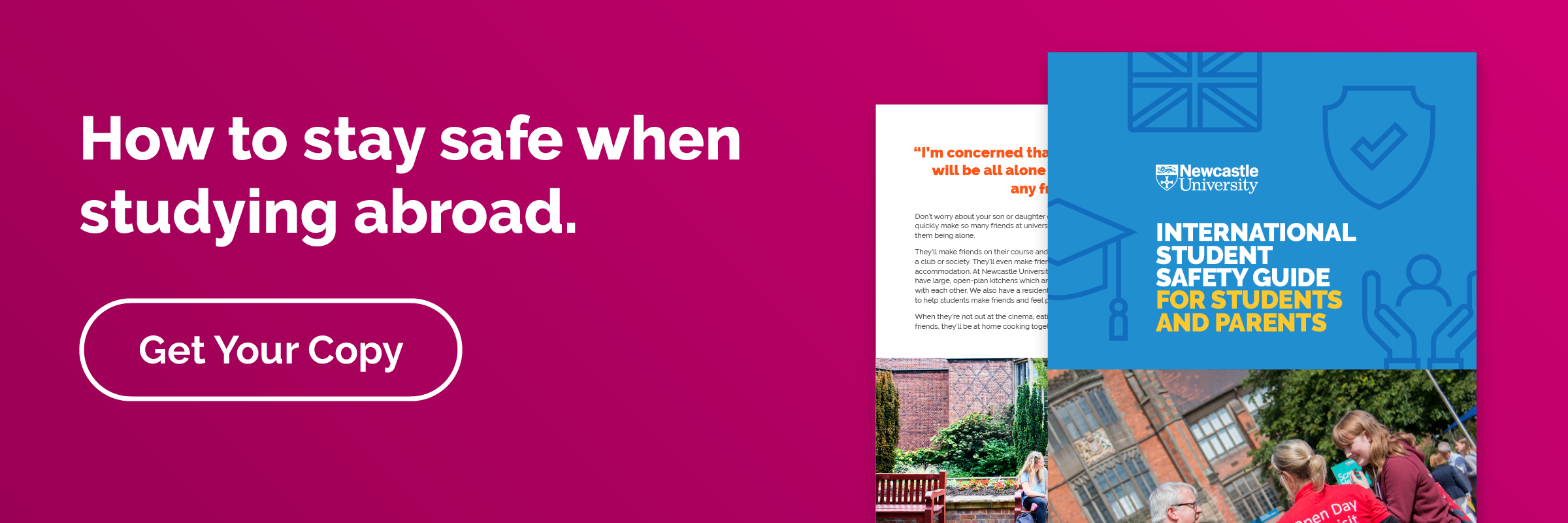Travel insurance is as important as health insurance for international students. It will cover you and your belongings during your trip in case anything should happen.
So what travel insurance is available? Which one is best for you? Here’s some useful information that can help you on your way to university.
Below you’ll find easy steps to follow which will help you decide which insurance works best for you:
- do you need travel insurance?
- check the details of your trip
- decide what to cover
- finding the right insurance for you
- what you need to buy travel insurance
- further steps you can take
Read on to find all the answers you’ll need.
Please note that this information was researched and correct at the time of writing, but UK policy on insurance for international students can be subject to change.
1. Do you need travel insurance?
Of course you do
Travel insurance is legally required to study in the UK, but it’s definitely something we recommend you have when travelling to ensure your safety.
You should find the insurance that offers the best value for money and covers a wide range of items and activities. It’s also good to find an insurance policy that is customisable so you can change it to suit your needs.
2. Check the details of your trip
If you’re studying in the UK, you’re likely to live in the country for at least three years. But some courses might be shorter or you might be a postgraduate student. That’s why there are different types of travel insurance for different students. By looking at the duration of your stay, you can make an educated decision about which insurance to get.
Also, consider how often you’ll travel from your home country to university and back, as there are different levels of cover available. These are:
- single trip cover: this covers only one trip of a certain length e.g. up to 100 days
- multi-trip cover: this covers you over multiple trips within a 12 month period
We’d recommend looking at multi-trip cover as it’s likely you’ll travel from your home country to university more than once during the year.
3. Decide what to cover
What do you want your travel insurance to cover when studying abroad? Student travel insurance usually covers a lot of different things, for example:
- medical bills
- replacing lost luggage
- emergency dental work
- replacing a lost visa or passport
Finding a customisable insurance policy means that you can choose what you want to cover. You don’t want to pay more money than you need to on an insurance policy that doesn’t apply to you.
Having travel insurance also means you can claim money back if you can’t travel due to illness or injury.
4. Find the right insurance for you
When finding insurance, you’re usually given ‘quotes’ about what the insurance will cover and how much it will cost. Compare multiple insurance quotes from different sources. Check the terms and conditions of each offer.
You should also be aware of any exclusions that your insurance might not cover, such as:
- extreme sports injuries
- age
- pre-existing medical conditions
We recommend checking quotes to see which one suits your needs the best. If it doesn’t have what you want, keep looking. The right insurance quote is out there for you.
5. What you need to buy travel insurance
You don’t need much to buy travel insurance. Here is a shortlist of what you require:
- your full name and date of birth
- your address and phone numbers
- the name and details of your next of kin
- your payment information (credit/debit cards, bank information)
6. Further steps you can take
There are three other important steps international students have to take before coming to the UK:
- meeting the course’s entry requirements
- getting a student visa
- finding international student health insurance
This may seem overwhelming but don’t worry! We’ve got all the information you need.
A student visa is what allows you to study in the UK. It’s simple to get, but very important. For more information on this topic, why not check out our blog on student visa cost in the UK?
International student health insurance for UK study is also important. Non-EEA students can apply for this on top of a student visa. This means you will qualify for the same benefits as UK citizens, such as doctor visits and emergency treatments.
After this, you’ll be able to register at your local doctor’s practice. This is easy. All you need to do is visit a surgery (doctor’s office) or health centre, and bring a letter from your university that proves you are a student there. You can then ask to be added to the NHS list, and if approved, you’ll get an NHS number. Simple!
You may also need to take the IELTS (International English Language Testing System) exam, which proves that your English is at a level where you can understand the work and lectures in English.
Preparing for university is easy...
Sometimes, it seems like there are hundreds of things to do to stay safe during your university journey. Luckily for you, we’ve created a free, easy-to-read student safety guide that answers all of your questions and is full of helpful advice on accommodation, public transport, online safety and other key parts of the university experience.
Click on the link below to download your copy.
